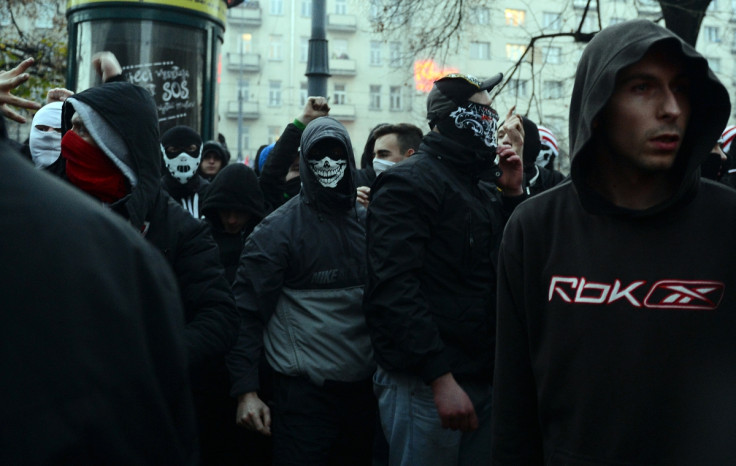Polish far-right groups extending influence across Europe, warns expert

Polish far right groups are extending their influence across Europe through radicalised members of the country's diaspora, a leading expert has warned.
Rafal Pankowski, professor at the Collegium Civitas and a director of the Never Again anti-racism group, said that branches of far-right groups had been set up in Polish immigrant communities throughout Europe, where they are forming alliances with native anti-immigrant groups, and engaging in racist attacks.
In an interview with IBTimes UK, he stressed of "the active role of [Polish far-right] organisations and networks in moving or leading some of those groups or some of those people into certain dangerous directions" adding "I would not underestimate the role of those groups in poisoning community relations."
The warning comes with Polish far-right groups stepping up their activity across Europe in response to the refugee crisis. In February, fourteen far right activists in Sweden were arrested for planning to attack asylum seekers with axes, iron pipes and knives. Swedish police said some of the men were residents of Sweden, while others had travelled to the country.
Last week Polish far-right activists joined UK extremists the North-West Infidels at a rally in Liverpool, where they clashed with anti-racism demonstrators.
Warsaw is the location of one of Europe's largest far-right rallies, with tens of thousands of extremists from throughout Europe gathering on 11 November every year to mark the country's independence day. Last year, 50,000 attending the rally, burning EU flags and chanting anti-Islam and anti-EU slogans.
The occasion has provided an ideal opportunity for Polish extremists to build alliances across the continent.
In a recent report anti-racism group Hope not Hate identified several Polish far-right groups operating in the UK, with the Narodowe Odrodzenie Polski (National Rebirth of Poland) group among the most active. The organisation is believed to be responsible for an attack on a London music festival in 2014.
In Sweden, Polish far right groups have formed ties with members of the Nordisk Ungdom (Nordic Youth) fascist group, while in neighbouring Hungary Polish extremists have built alliances with far-right group Jobbik, which is notorious for its fiercely anti-Semitic rhetoric and for organising attacks against Roma.
The Polish far right NOP party has a strong internet presence, with members communicating through the group's Facebook pages ot the party website, which has pages for supporters in several European countries.
"Definitely there is quite a lot of interaction and collaboration of far-right groups across borders", said Pankowski, "which is kind of paradoxical but on a different level it makes sense because they have the same enemy: pluralist democracy and the whole idea of diversity."
After Poland became part of the EU, millions of young Poles took advantage of the union's freedom of movement policy to escape economic stagnation at home and find employment in prosperous northern European countries. Pankowski acknowledges the 'paradox' that those who are themselves immigrants should show support for such violently anti-immigrant groups.
"They don't seem to realise they are actually attacking other migrants who may be in a similar situation apart from they have a different skin colour," he said.
With Poland among the least multicultural societies in Europe, moving to a country with a sizeable ethnic minority population can trigger an identity crisis for some young Polish immigrants, he said. "I think many are quite confused about their identity, and being Polish abroad means understanding what multicultural society looks like, but for others it brings out dormant prejudice, and reinforces some prejudices they are prone to."
© Copyright IBTimes 2025. All rights reserved.






















